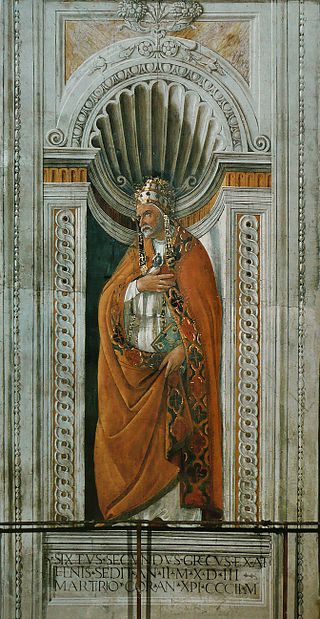A blessed memorial of Pope Saint Sixtus II and Companion Martyrs, who were beheaded along with six of his deacons in witness to the Faith, on the sixth of August, in the year of our Lord 258, under the persecution of Emperor Valerian. Many priests, bishops and laity were put to death, and Sixtus was one of the first to receive the palm of martyrdom. He would be followed a few days later by another of his deacons, Lawrence, one of the few non-Apostle saints to be honoured with the full rank of a ‘feast’.
We also honour today Saint Gaetano Cajetan (1480-1547), not to be confused with the ‘other’ Cajetan, whose name was Thomas, a famed commentator on Saint Thomas Aquinas (who lived around the same time). Rather, this Cajetan was a true reformer in the time of the inaptly named Protestant ‘reformation’, a lawyer, medical worker and priest, who founded the religious order of the Theatines, after the city of Chieti where they arose (their more accurate and full name is the Congregation of Clerics Regular of the Divine Providence). The Theatines were one of a group of new Orders (primary amongst them, the Society of Jesus) which helped renew and revitalize the Church during the tumultuous 16th century, leading into the modern era.
On the note of the witness of the hierarchy, a good read is the recent fine article by Father George Rutler, a summary of a forthcoming book on the qualities requisite in a pastor, especially a parish priest. Practical good advice, and I look forward to the fuller treatment. If only every priest were to fulfil, even at the most basic level, the requirements of the priesthood, the world would be a very different and a far better, place. The same, of course, goes for the laity. God does not ask much of us, really, for His yoke really is ‘easy’ and His burden ‘light’, if we but obey His voice. It is when we resist, and kick against the goad, that things get difficult.
Here is advice from today’s Office of Readings, from Saint Cyprian, himself a bishop, in Carthage, who would be martyred himself a month or so after Pope Sixtus, in September, soon after penning these prophetic words:
I ask you to make these facts known to the rest of our fellow bishops, in order that by the exhortation of their pastors the brethren everywhere may be strengthened and prepared for the spiritual combat. Let all our people fix their minds not on death but rather on immortality; let them commit themselves to the Lord in complete faith and unflinching courage and make their confession with joy rather than in fear, knowing that in this contest the soldiers of God and Christ are not slain but rather win their crowns.
Farewell in the Lord, dearest brother.

